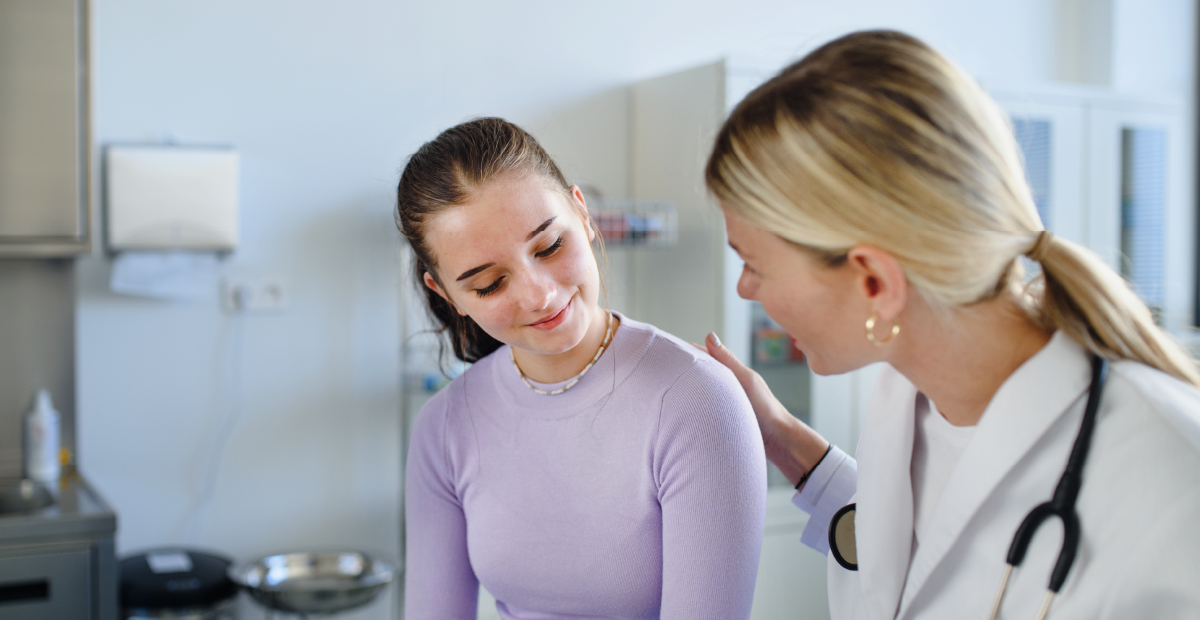Table of Contents

Teenagers are in a vulnerable stage of development facing many changes biologically and socially. Although sometimes adults think teens have nothing to worry about, they face a number of social challenges in their lives that can cause stress.
Understanding the problems faced by teens can help parents better support them during periods of high stress.
Diving Into A Teenager´s Context
Understanding the context of teens is important to empathize with their situations that may cause anxiety, depression or added stress. Teens are at a sensitive stage where they are exploring their personalities, friendships, thinking about their future and adulthood, all while dealing with biological changes happening in their bodies.
Today’s teens are growing up in a fast-paced digital world where social media, on-screen violence and hypersexuality play a big role in teenage culture. This can impact their self-esteem, add extra pressure to fit in and even lead to mental health problems such as depression or anxiety.
Common Issues Faced by Teenagers
Teens face a number of social issues that can impact their relationships, schooling and future for adulthood. It is important for not only parents to be mindful of these issues, but educators, medical professionals and community leaders as well.
Making sure teens are taken care of and have the tools to face issues will help them be more successful and happy adults.
Academic Stress
Academic pressure has been cited as the number one trigger for anxiety in teens. Keeping up with homework, good grades and the pressures of their future, while trying to balance a social life and extra-curricular activities is a large stressor for teens.
Developing Brain
The rapid biological changes happening in the brain can make it harder for teens to regulate their emotions. Parts of the brain that control emotional reactivity, pleasure and reward mature faster than the region that controls logical thinking and decision-making. This is why teens tend to be more impulsive or reckless.
Puberty and Hormones
Other biological changes include an influx of hormones, changes in the body and physical features of teens. An increase in hormones can make teens more moody or aggressive. Physical changes happening in the body such as acne, body odor and facial hair can make some teens uncomfortable and insecure.
Social Media
Teens today have extra pressure dealing with the stress of social media. Seeing posts of influencers, models and edited photos can cause unrealistic expectations for how teens should look.
Usually social media only shows a small piece of someone’s life without context. It’s important for teens to be mindful of this and understand not everything they see online is the full reality.
Alcohol and Drugs
Teens are often faced with peer pressure or put into situations where drug and alcohol use is encouraged. Some teens may feel like they need to partake in these behaviors to fit in. About 15% of teens 12-18 have reported being drunk from alcohol.
How to Help Teenagers
It’s important for parents to recognize and validate the struggles of teens. Being an ear they can listen to can go a long way in building trust.
Creating a safe home environment where teens feel comfortable to talk about their feelings and experiences can make them feel less alone. Teens are one of the most isolated demographics of people and making them feel like their struggles matter can greatly benefit their mental health.
Some tips for parents to support their teens include:
- Actively listen to your teen´s problems with a non-judgemental attitude
- Encourage open conversations in the home related to mental health, drugs, friends, alcohol or anything else that may be considered taboo
- Educate yourself on the stress teens face
- Help your teen build self-care practices
- Promote mindfulness to help your teen stay calm in times of crisis (yoga, meditation, deep breathing, art, etc)
- Encourage them to get involved in an activity that boosts their mental wellness
- Model behaviors for your teen you want them to embody
- Find an activity you and your teen can bond over together (hiking, music, art, cooking, riding bikes, etc)
Sources
Key Substance Use and Mental Health Indicators in the United States: Results from the 2022 National Survey on Drug Use and Health. SAMHSA.

Mike Carter, LCDC
Alumni Relations Manager
Mike grew up on a dairy farm in Parker County, Texas. At the age of 59, he went back to college and graduated 41 years after his first graduation from Weatherford College. God placed on his heart at that time the passion to begin to help others as they walked from addictions, alcoholism, and abuse of substances. He is a Licensed Chemical Dependency Counselor and in the past few years he has worn many hats, from intake and assessment, group counseling, individual and family counseling, intensive outpatient and now he is working with clients, therapist, and families on discharge planning and aftercare. He also coordinates our Alumni Outreach Program.





